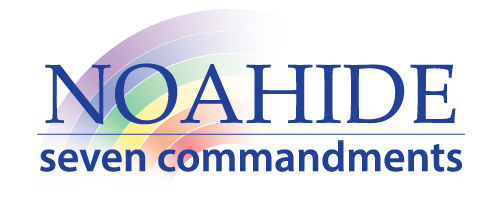© 2014 by Rabbi Zvi Aviner
Noah’s Tree Of Life
Introduction
The front of this book displays a US Congressional resolution that recognizes Noah’s Seven Commandments as a basis of our nations’ moral fabric. Initiated by President R. Reagan and signed by President G. Bush on March 26, 1991, it brought thousands of years of Talmudic tradition into the public light.
These ‘Seven Commandments of Noah’ are derived from the Book of Genesis, and therefore preceded Moses’ Ten Commandments of Sinai, given in the Book of Exodus. These Seven Commandments are: (I) Idolatry (II) Adultery (III) Bloodshed (IV) Theft (V) Injustice (VI) Blasphemy (VII) Prohibition to eat a limb from a living animal or drink blood. You can’t fully comprehend Moses’ Ten Commandments without a prior knowledge of Noah’s Seven.
As the USA Congress recognizes, Noah’s Seven Commandments are the basis of any decent human society. They are primordial: the first six were given to Adam in Eden; the seventh was added by Noah after the Flood. Hence Noah’s Commandments are not aimed at the Jewish people alone but rather at Mankind. They are ‘headlines,’ a set of moral cries to be studied in details.
There are several good books that present Noah’s Commandments in a scholarly fashion. This book takes a different approach. Who was our father Noah, exactly? Who was his wife Naama, our mother? What was their life-story? How did they meet? How did they marry each other? What were their perspective faiths? How and why did they survive the Flood, exactly? What were their concerns about us, the generations that followed the Flood?
Fortunately, we can restore Noah and Naama’s memories from material preserved in the pages of the Talmud; in the Midrash, Kabala and Bible Commentators. This work uses that information to bring Noah and Naama back to life. As it turns out, their story is fascinating indeed. It seems that their generation resembles ours. Theirs split too between those who worship MERCY and those who worship JUDGMENT, fighting each other to the death with much BLOODSHED. Noah came from the first camp, while Naama from the other, and they were not supposed to get married. The struggle for ONENESS and against BLOODSHED became the passion of Noah’s life; the core of his Rainbow Covenant. So suppose that Noah wrote a scroll to his children after the Flood, in which he tells them his life-story and his expectations from them – and from us. What would he say? Could his words save us from seeing another Flood in our time?
Writing as Noah in first, personal voice, renders his words a passionate tone. I avoided quoting the abandon resources for the sake of simplicity, apart from citing the appropriate verses of the Book of Genesis, Chapters 1-5. When necessary, I also added a note marked by “Editor.”
I would indebt this work to the blessed memory of the late Rev. Vendyl Jones, whose inspiration has enkindled in me, as well as in many others the passion for Torah and Noahides.
Zvi Aviner, Lafayette Louisiana, USA, 2014
